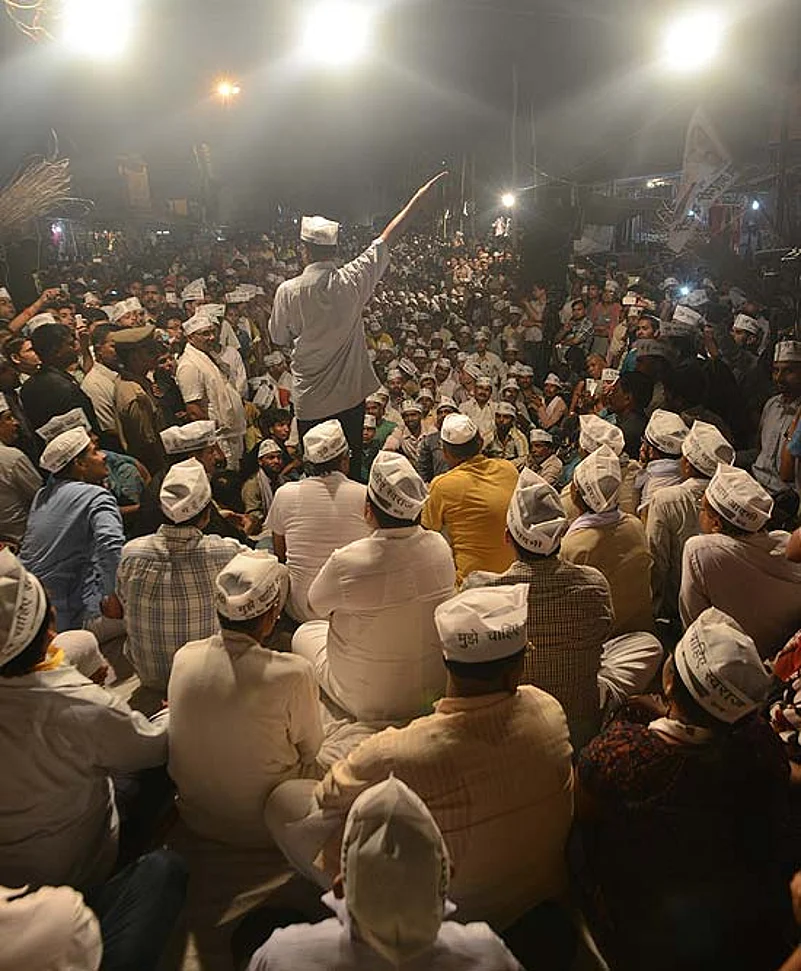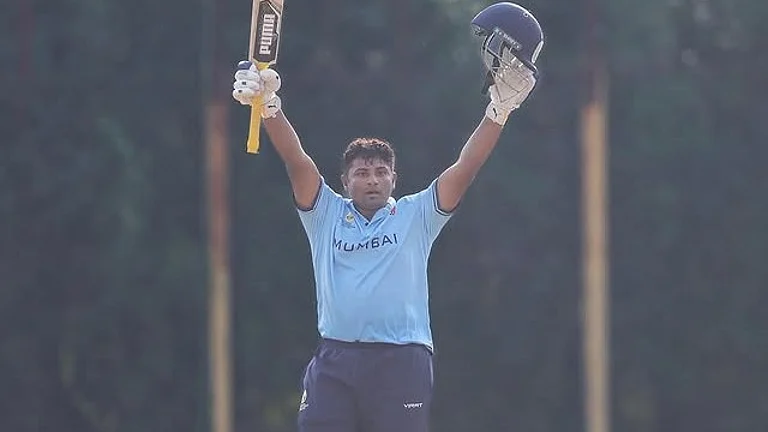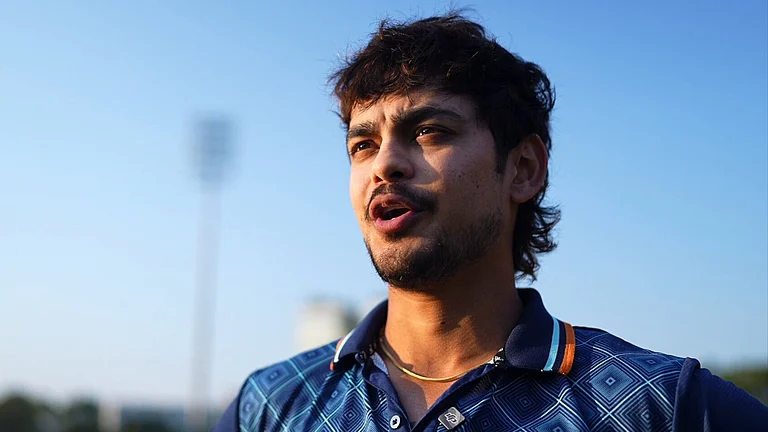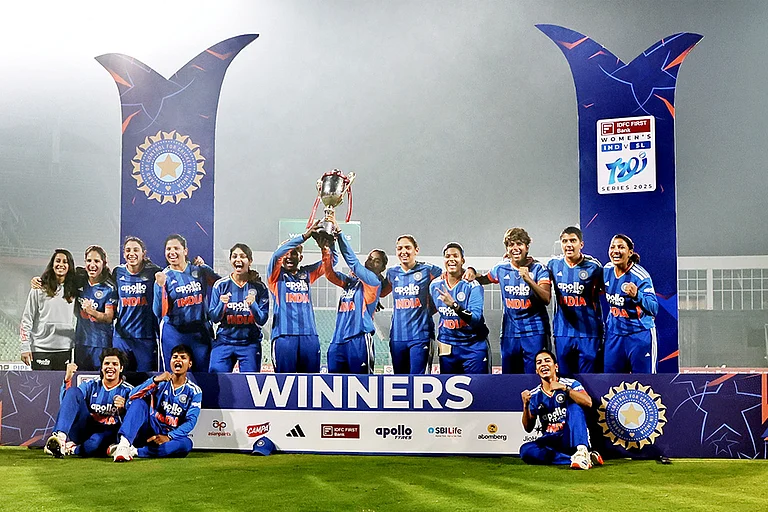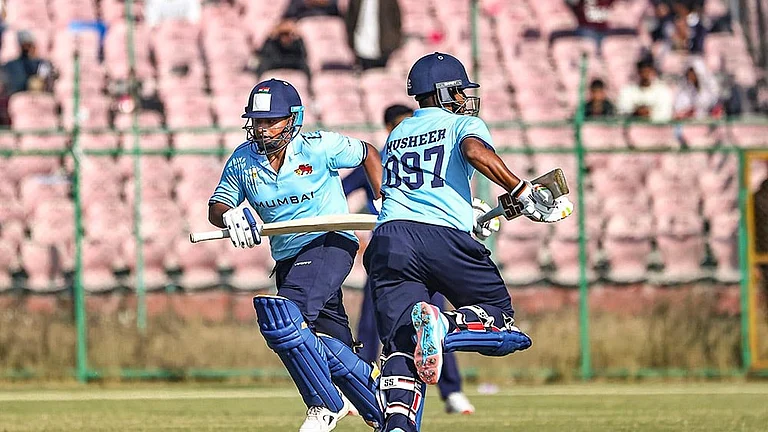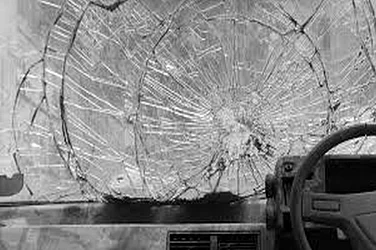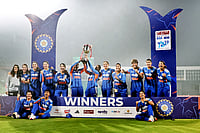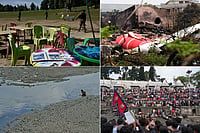- In Varanasi, Kejriwal and his AAP put up a strong fight against Narendra Modi, the BJP’s prime ministerial candidate
- The AAP’s house-to-house campaign, Kejriwal’s personal appeal to some of the influential people of the city helped
- Kejriwal’s defeat will be considered honorable. He has done his best despite knowing he doesn’t stand a chance.
***
It is always harder to swim against the tide than with it. Less than half a year ago, Arvind Kejriwal and his Aam Aadmi Party (AAP) did a demolition job on the Congress in Delhi. At that time, they were actually flowing with the tide while the mood in the country was already overwhelmingly anti-Congress.
When Kejriwal decided to challenge Narendra Modi, however, it was a different matter. He was trying to flay in the face of the wind. Varanasi has been a BJP bastion even before the Modi phenomenon erupted; now, in every lane are heard the chants of ‘Har har Modi!’. In the strip along the ghats known as Kashi, some BJP supporters went so far as to suggest that they considered Kejriwal’s contesting against Modi an affront to the gods.
Given the disproportionate asymmetry underlying the Modi versus Kejriwal battle, there will be honour for Kejriwal even if he is defeated. Victory, of course, would have been a fairy tale come true. Yet, it was a braveheart fight that Kejriwal and his loyal band of followers put up. He came to Varanasi without the support base of a caste or a community, but within a month, he created one for himself from scratch. This was in utter defiance of conventional political wisdom.
Kejriwal’s volunteers were thrashed, he himself was assaulted and abused. At one public meeting, someone blackened his face with ink. Many journalists covering Varanasi predicted that he’ll lose his deposit. But there he was, doggedly campaigning, smiling and fighting with his back to the wall. After all, humanity is won by continuing to play in the face of certain defeat. That is where courage is revealed, character tested.
As the first national election in which the young AAP participated comes to an end, it can be said that, although in terms of conventional arithmetic, the party may have fallen short, it’s no small achievement that (according to exit polls) it has managed to garner 3-4 per cent of the vote nationwide. Yogendra Yadav, a core committee member of the AAP, says the party had debated whether it should limit its efforts by contesting from 40-50 seats or go all-out nationally. Ultimately, AAP put up 426 candidates, more than the BJP’s 415, the Congress’s 414. Even before the results came out, party members were questioning the wisdom of this and of concentrating on Varanasi. “We all went to Varanasi for Arvind, but he could not come (to campaign) for us,” complains a candidate.
Yogendra Yadav, however, sees it differently. “Had we contested just 40 seats, the outcome would not have been very different,” he says. “Now, we have over 2 crore voters and, in some 350 seats, some of the best people have stepped into the political arena for the first time.” The other breakthrough, Yadav points out, is that, after Delhi, AAP has an impressive voteshare in Punjab. The party has drawn Muslims and Sikhs in large numbers.
What the future possibly holds for AAP is this: in Parliament, it is unlikely to be much of an opposition. But its protest-mode politics and attack on crony capitalism will make it the ideological pole that will provide the most visible and consistent opposition to any regime led by Modi, the toast of corporate India.
Simultaneously, AAP will also be playing identity politics of sorts. It holds appeal with the poorer sections that are reeling under the impact of a price rise—those living in the slums and bastis of Delhi, for instance. It also holds appeal with those who are speaking of and seeking clean politics in corruption-ridden Punjab. In Varanasi, AAP has been approaching the poorer castes and the minorities. If Modi represents the conjoining of the capitalist project with the Hindutva project, then AAP, although it is a small force, is a fighting force ready to strike on both fronts.
In fact, on the ground, by the time voting day came, BJP managers were privately expressing admiration for the fight put up by AAP. How did Kejriwal and AAP do it? First, they launched a gritty, month-long door-to-door campaign. Once elections were over in Delhi and Punjab, AAP volunteers descended on the city. Kejriwal went to villages in the two rural segments of Varanasi, places hardly any politician had trod upon. He surprised voters there and some of them responded by voting for a person who was clearly the underdog.

In the city areas, those who oppose Modi on ideological grounds watched his campaign and decided to vote for the AAP’s jhadu. There were many people he met on a one-to-one basis, among them Vishvambhar Nath Mishra, mahant of the Sankat Mochan temple. The influential Mishra family promotes a festival of music and throws a strong voice for getting the Ganga cleaned up. Traditionally, it has supported the Congress. Like Kejriwal, Modi too visited the mahant. Both contestants were told the river must be decontaminated on priority. Later, Modi made it a point to invoke the Ganga in his speeches. He promised to clean up the river and develop the riverfront. Unimpressed, the mahant stated a few days before the polls that Modi’s promise of developing Varanasi like the Sabarmati waterfront was unacceptable. Was he turning pro-Kejriwal? No, he would be non-partisan, the mahant said, but praised Kejriwal for putting up a “remarkable fight when no one was giving him a chance”.
In the 2009 Lok Sabha polls, Mukhtar Ansari, a local gangster, had lost to Murli Manohar Joshi of the BJP by just 17,000 votes. But that became possible only because Ansari was contesting on a BSP ticket: he drew votes from his Muslim community as well as Dalits and other supporters of the BSP. Kejriwal had no such support base to build upon. Indeed, Jamal Lari, a close associate of Ansari, says they had waited for Kejriwal to seek their support but he did not do so. Eventually, Ansari’s own political outfit offered support to the Congress, but the minorities did not follow suit.
Muslims have about 3 lakh votes in Varanasi, and on the night before polling day, the decision to vote for Kejriwal was firmed up, with about 70 per cent of them choosing to put the stamp on the jhadu. This happened in spite of the resistance by many senior citizens, who were comfortable with the Congress. A sort of panchayat took place, with 300 community leaders from various localities holding a 10 pm-to-midnight meeting. Fierce arguments were put up in defence of the Congress but most representatives felt that youngsters would not listen to their appeal.
That night, little groups went into huddles in the lanes of Varanasi. In the Beniabagh locality, Mahtab Hussain, son of shehnai player Ustad Bismillah Khan, sat in the room in which his late father would practise and revealed he was always a supporter of the Congress. Yes, the BJP came and asked the family to be one of the proposers of Modi’s candidature and it was the NDA regime under Vajpayee that had bestowed the Bharat Ratna upon the shehnai maestro. “But why should I bother with all this?”
Hussain then went on to say that “all our earnings have come from Hindus, they kept asking abba to perform, while conservative Muslims said music is haraam. But we don’t want to get into politics and now I say my prayers regularly and have been on the haj.” It was a tale of a family of artistes being asked to become a political symbol. Sensibly, they refused. Residents of the lane leading to the ustad’s house were playing another tune: they were planning to vote overwhelmingly for AAP the next morning.
In the wider streets of Madanpura too the decision had been made. Said Tanvir Ahmed Siddiqui, “Why should we always be a votebank for some party? We are not voting for Kejriwal because we are scared of Modi. We are voting for him because we like him and he is an honest candidate. We are voting as human beings, not as Muslims.” The same line was repeated by young Muslims who had joined the Kejriwal roadshow on May 9 in large numbers. Said Faizal Khan, a young man who worked for the campaign for three weeks, “I have been inspired for the first time in my life. I and my friends are not voting for Kejriwal because we are against Modi. We are concerned about gas prices, about Ambani, Adani and how the BJP’s policies will affect the cost of living in Benares.” Who would have imagined that such rhetoric would be absorbed by a young Muslim youth who lived in a slum of Benares.
Resurrection after defeat is a theme explored by all religions of the world. Kejriwal had always set out to win a moral victory in an honourable defeat.






